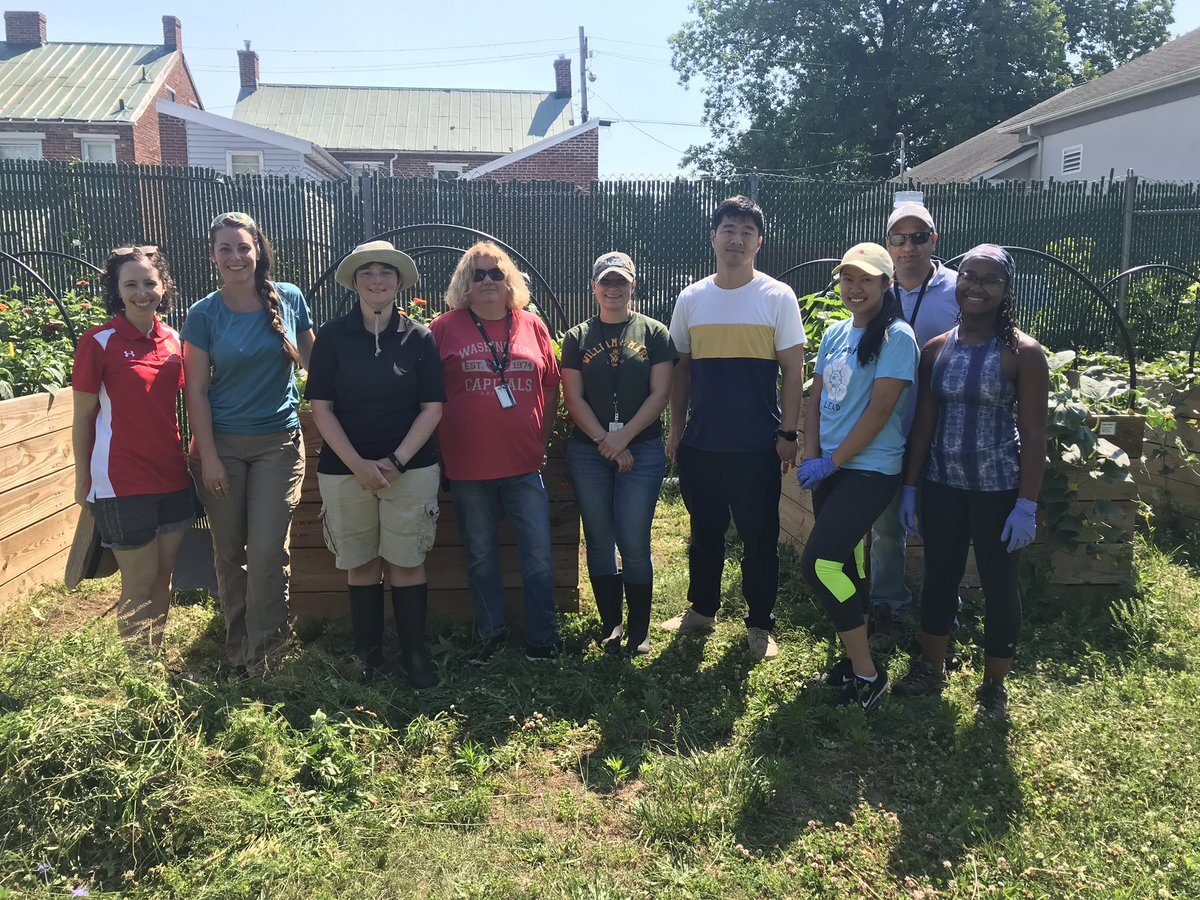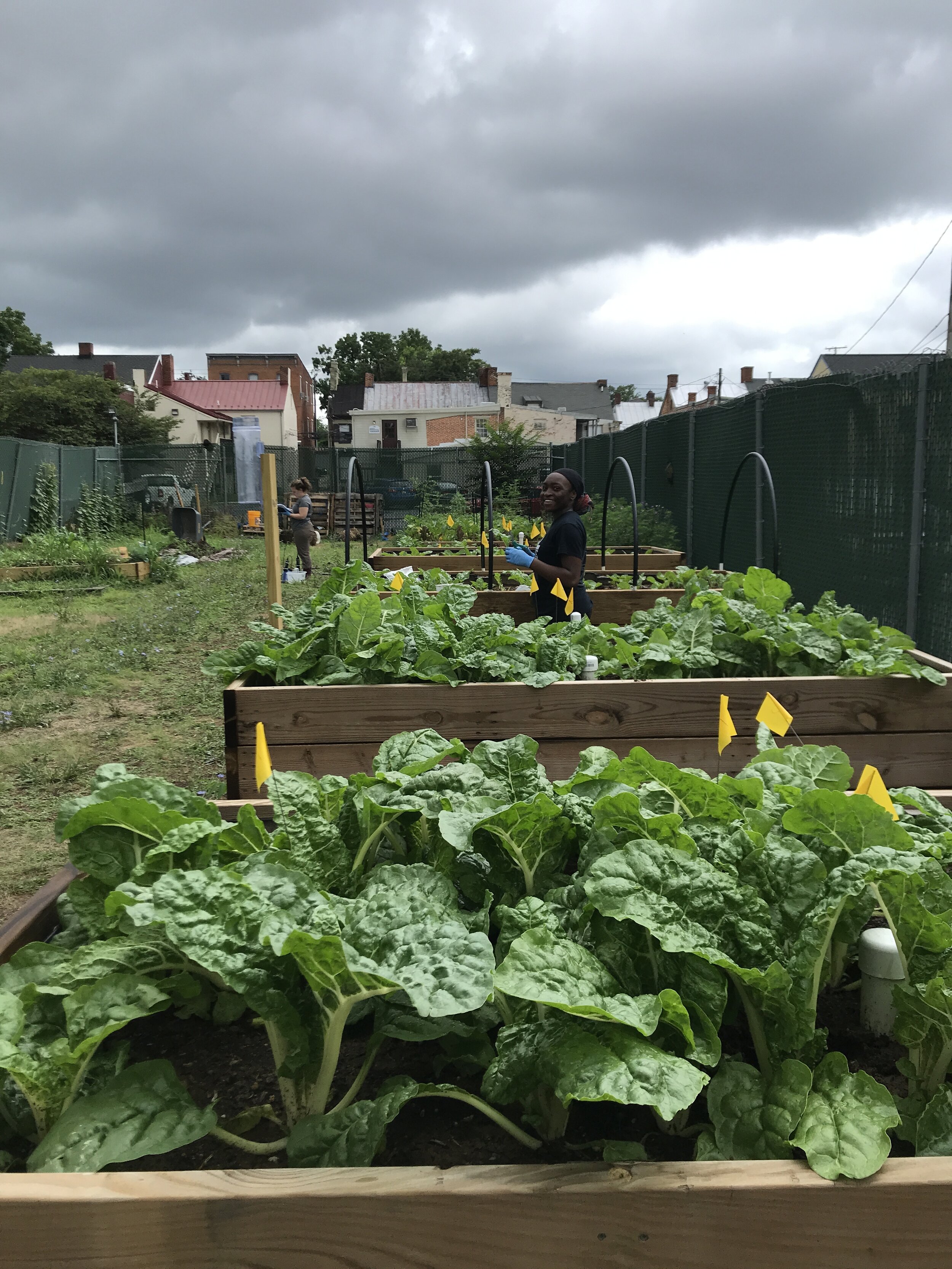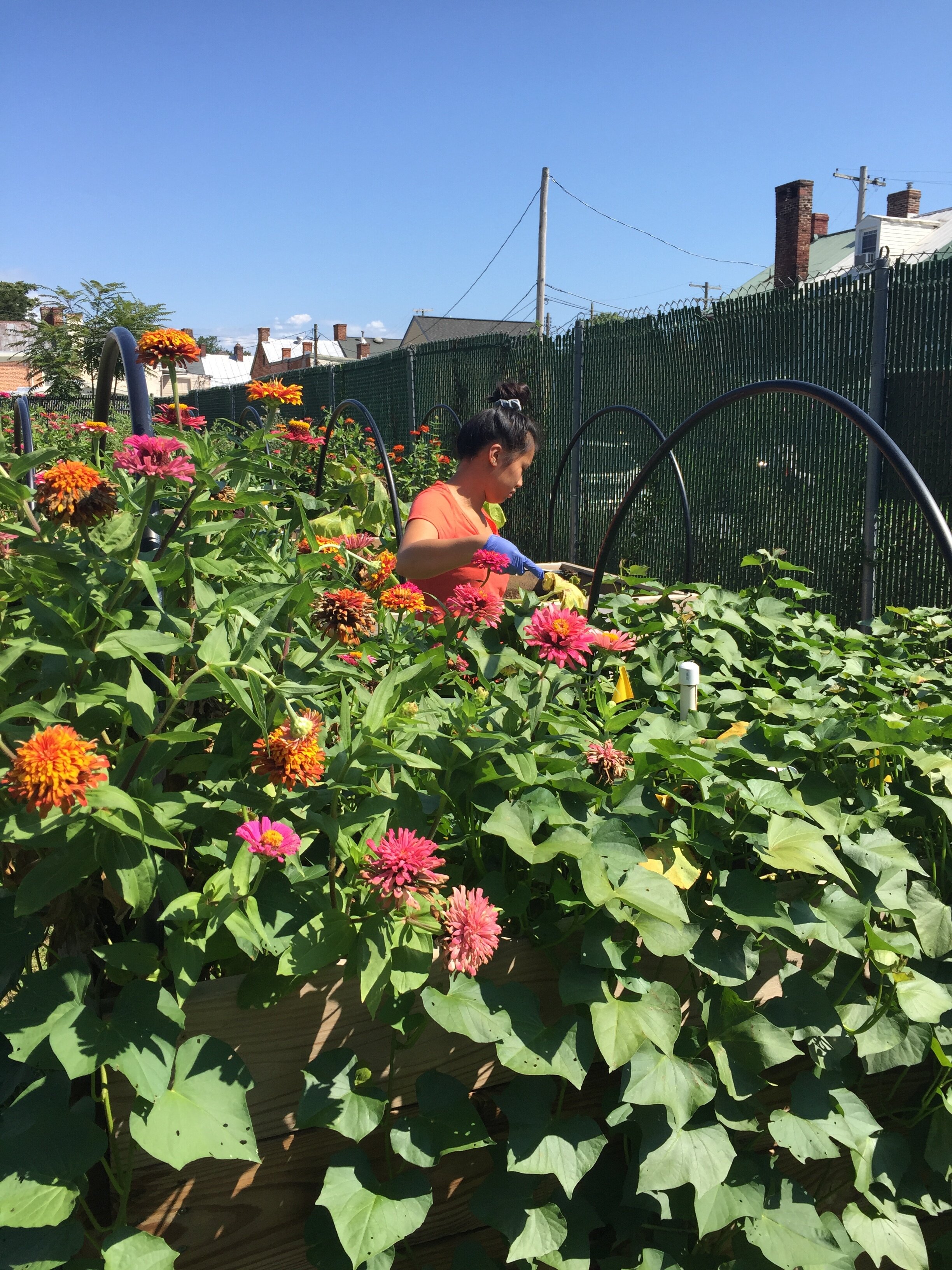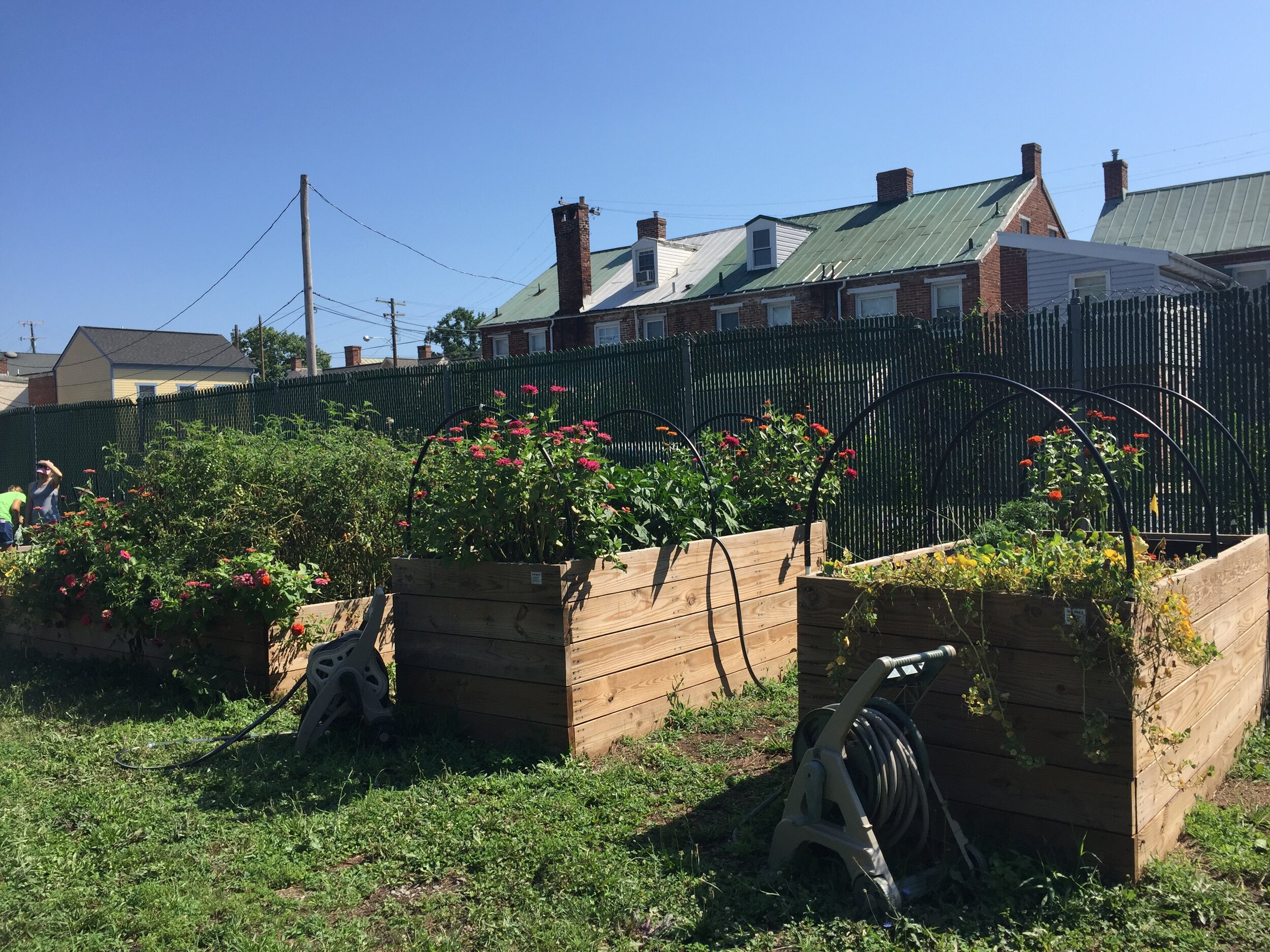You Can’t Rain Enough On This Parade
From Dr. Rachel Goldstein’s perspective, rainy days are the brightest of all, especially if you know how to use them.
Goldstein is an environmental microbiologist and Assistant Professor at the University of Maryland, who specializes in how we use, restore and amplify the power of water.
“I’m trying to take a holistic look,” she explains to Replate. “The goal is to figure out how to safely implement stormwater reuse, and nontraditional water use in agriculture.”
Goldstein’s latest endeavor, The RRIPER Project (Rooftop Runoff Irrigation Produce Eaten Raw), was a joint initiative with the Religious Coalition for Emergency Human Needs in Frederick, Maryland, which provides shelter and other services for people in need. The shelter had previously built vegetable garden beds on its property, and, with the help of students from Hood College, installed a rainwater harvesting system, which collected precipitation from the roof for irrigation. The apparatus connected the home’s gutter to a plastic tank, where dirt and litter were trapped; the clean water then passed through additional filters before entering the soil.
“They were having these amazing yields and all these social benefits, not just saving water but community engagement and improved access to fresh produce,” Goldstein recalls.
Goldstein offered to test the quality of the stormwater for the organization, and, after doing further research, realized it was an area of scientific inquiry lacking data and discussion. Thus, the RRIPER Project was born.
For the next two summers, Goldstein examined soil and produce at the shelter for bacteria and heavy metals, finding low levels of both - a promising result for the agricultural community.
“I know that our water resources are being stressed and climate change is only going to make that worse and population growth,” Goldstein observes. “We’re facing this water crisis where most people in their daily lives don’t think about where their water comes from. I see my role as I have these skills and I can help people and I want to give people the tools to empower them.”
The next phase of the RRIPER Project will be looking at how to adapt these tests and treatment methods in various contexts. She’s already added two more sampling locations to the study, and will begin a new project this summer working with 25 urban farmers in Baltimore to review irrigation systems.
For Goldstein, motivation comes in the form of those who are willing to make changes for the betterment of others.
“I love the idea of helping people understand the value of the environment and how to work more in harmony with it,” Goldstein says. “Sometimes, there’s so much going on in people’s lives, it might not be top of the mind how to be more sustainable, but I think there are ways to do it that are economical and energy efficient. It can benefit your health, the community, having all these additional resources and really thinking sustainably. I see my role as being a conduit for science and how communities can utilize it.”
To learn more about the RRIPER Project, visit their website.




